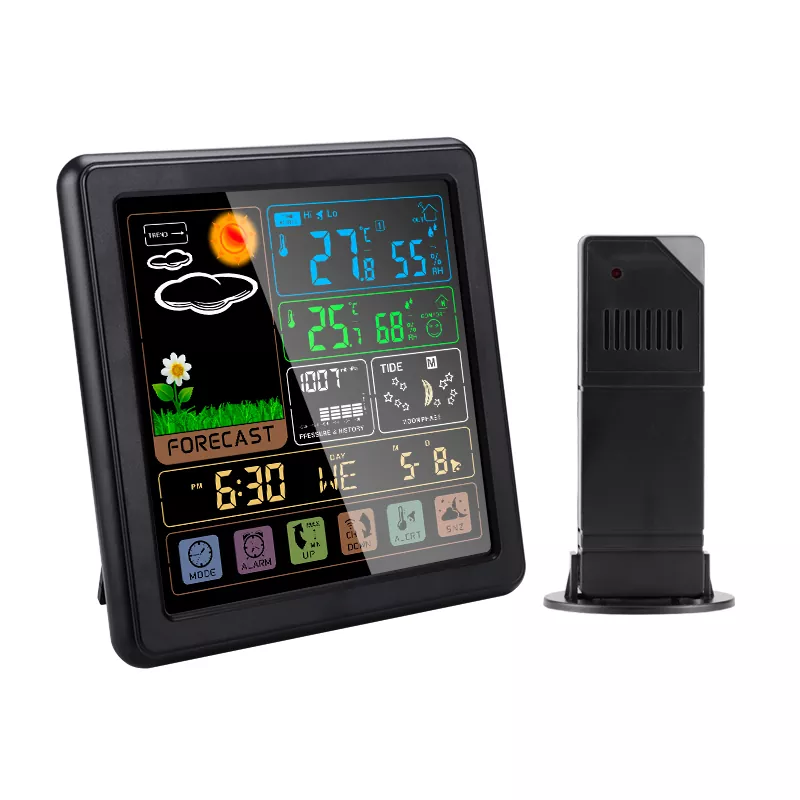What advantages do weather station clocks have over ordinary clocks?
2025-04-11
Weather station clocks have many advantages over ordinary clocks, mainly in terms of accuracy, reliability, adaptability and professionalism.
1. Accuracy
Weather station clocks usually use high-precision atomic clocks or quartz clocks as timing standards to ensure the accuracy of time. This is in contrast to the deviations that may occur in ordinary clocks due to environmental factors.
The accuracy of atomic clocks can reach only a few seconds or even less per year, and quartz clocks also have extremely high stability, far exceeding the accuracy of ordinary mechanical or electronic clocks.
2. Reliability
Weather station clocks are designed with various harsh environmental factors in mind, such as high temperature, low temperature, high humidity, electromagnetic interference, etc., so they have higher anti-interference ability and stability.
These clocks are usually equipped with backup power and automatic time calibration functions, which can maintain the continuity and accuracy of time even when the external power supply is interrupted.
3. Adaptability
Weather station clocks can adapt to different time system requirements, such as Coordinated Universal Time (UTC), local time zone time, etc., to facilitate the unification and comparison of global meteorological data.
They can also synchronize with satellites to ensure absolute accuracy of time, which is crucial for meteorological observation and forecasting.
4. Professionalism
The weather station clock is designed with special needs of meteorological observation, such as continuous recording of time, consistency of long-term data, etc.
These clocks are usually equipped with professional data recording and transmission functions to facilitate the collection and analysis of meteorological data.
5. Maintenance and calibration
The weather station clock has low maintenance costs and high self-calibration capabilities, which reduces the frequency of manual calibration of the clock and improves work efficiency.
They can automatically receive time signals through the network or satellite to achieve remote time calibration and ensure the uniformity and accuracy of time.
In summary, the weather station clock is far superior to ordinary clocks in terms of accuracy, reliability, adaptability and professionalism, and is an indispensable tool for meteorological observation and research.
 English
English שפה עברית
שפה עברית беларускі
беларускі Punjabi
Punjabi Español
Español Português
Português русский
русский Français
Français 日本語
日本語 Deutsch
Deutsch Italiano
Italiano Nederlands
Nederlands 한국어
한국어 Malay
Malay हिन्दी
हिन्दी Türkçe
Türkçe العربية
العربية Indonesia
Indonesia Română
Română Srpski језик
Srpski језик



